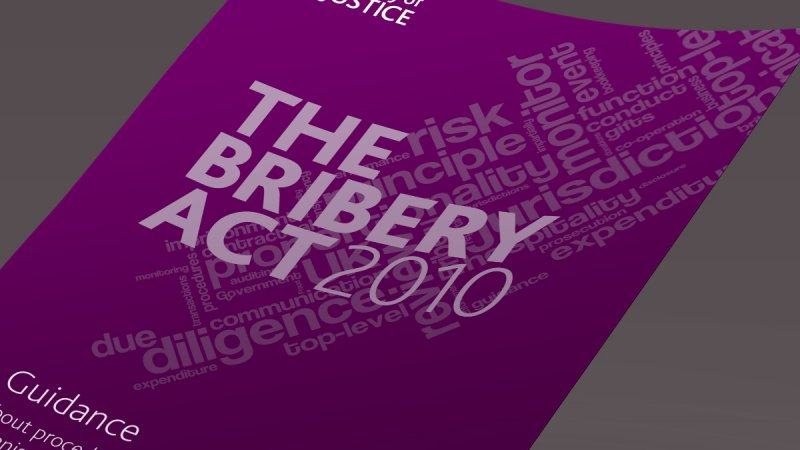Our Anti-Bribery Courses
An individual or organisation guilty of a bribery or corruption offence will be subject to Section 11 of the UK Bribery Act 2010. Section 11 stipulates the penalties for bribery and corruption offences, which increase in severity according to the scale of the offence. Therefore, to avoid crippling fines, prison sentences and reputational damage, it is wise to comply with the UK Bribery Act 2010.
The Bribery Act Penalties:
The UK Bribery Act 2010 states that the penalties inflicted upon an individual who commits a bribery offence are:
1) The penalty of imprisonment up to 10 years, this prison sentence will be decided regarding the severity of the bribery offence.
2) The penalty of a fine. This can be unlimited, and therefore will be higher regarding the severity of the bribery offence.
If an organisation has allowed a bribery offence to occur due to in-sufficient procedures being in place, then the UK Bribery Act 2010 states that the penalties which will be inflicted upon the organisation are:
1) An organisation will face an unlimited fine, and this fine tends to be higher than the fine inflicted upon individuals, due to the size of corporations.
2) The organisation will be told to implement serious crime prevention orders, to ensure that bribery offences do not occur in the future. Serious crime prevention orders will include how an organisation conducts their finances, to ensure no doctoring of finances can occur.
3) The Proceeds of Crime Act 2002 states that any financial gain which the organisation received through the bribery offence, must be returned.
4) Disqualification of an organisation’s directors will also occur, as there has been a demonstration of a lack of top-level commitment (one of the adequate procedures which should be implemented). Thus, directors can be disqualified from holding the position as director for up to 15 years.

How else will organisations be affected by bribery offences beyond the official penalties of the UK Bribery Act 2010?
If an organisation has allowed bribery and corruption to take place, it suggests that they have not implemented the adequate procedures stated in the UK Bribery Act 2010. Therefore, there will be more repercussions for an organisation than just the penalties set out in the UK Bribery Act.
1) Damage to the organisation’s reputation. If an organisation is found to be guilty of allowing a bribery offence to occur, then clients and other organisations will be less inclined to work with this particular organisation.
2) In turn, this will create a loss of revenue if fewer organisations are willing to co-operate and invest in the organisation.
3) Lots of money will be spent in legal fees during an organisation’s attempt to prove their honesty regarding the case against them. Therefore, this emphasises how important it is for organisations to implement adequate procedures in order to avoid bribery cases against them.
4) The ability of a bribery offence to tarnish an organisation will inevitably lead to a loss of morale within the organisation, reducing the work ethic and output.
Skansen Interiors Limited are an example of an organisation which suffered the repercussions of a bribery offence. Skansen offered a bribe to an employee of DTZ Debenham Tue Leung (DTZ) worth £10,000, allowing Skansen to win a vital business contract. A newly appointed CEO to Skansen in 2014 highlighted concerns regarding the payments which were being issued to DTZ. Following this, the CEO conducted an internal investigation which included the implementation of new anti-bribery and corruption policies. However, the police and SFO did not regard the new anti-corruption policies to be sufficient, as the bribery offence had already taken place. Consequently, Skansen was faced with charge of a bribery offence, despite Skansen claiming that adequate procedures were now in place. The UK jury filed against this case and stated that the procedures which had been implemented were not adequate in order to prevent bribery. Now, Skansen have been convicted for a bribery offence and will ultimately face the stated penalties in the UK Bribery Act 2010.
The penalties inflicted upon organisations and individuals for allowing bribery and corruption to occur, can be severe. Therefore, the necessary steps to prevent bribery and corruption need to be conducted by both individuals and organisations.


